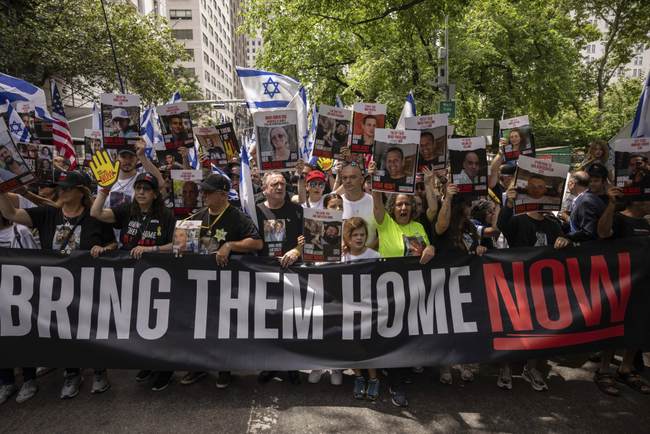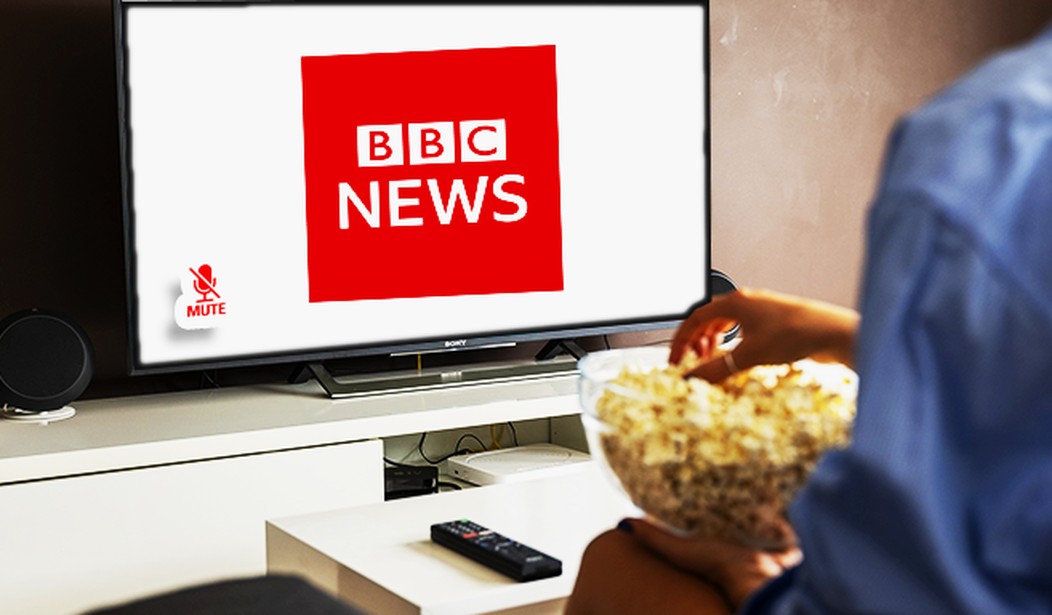The British Broadcasting Company has been a regular pro-Hamas outlet since the October 7 attacks. The network has taken a decidedly sympathetic approach during the war, has had to issue a number of corrections over that time due to repeating Hamas talking points, and they've displayed general favoritism toward the terrorist group. At one time the outlet referred to the hostages taken by Hamas as “prisoners” to give a sense of the slant at the BBC.
So it was rather on brand to see the news source come out with a documentary entitled “Gaza: How To Survive a War Zone,” which depicted the horrors faced by Palestinians today. The doc is centered on a 13-year-old boy and follows him as he endures the societal effects of the war-torn area where he lives. Upon release, trouble began to emerge concerning this documentary, and the disturbing issues have only grown since.
The controversy began last week when many critics noted that the boy featured had a problematic background. This child, who is 13 years of age, turns out to be the son of a Hamas minister. But this only began the problems for the BBC. Initially, the news organization claimed to have full editorial control of the documentary, but once this revelation came out, the network immediately turned to blame this on the production for not informing them properly about the background of this boy.

Now, since this has been learned, two other children featured in the documentary also turn out to have questionable connections with Hamas. And just as the BBC was dealing with this internally, more issues with this production have surfaced.
The latest has shown that one of the cameramen involved in this production has a history of pro-Hamas commentary on social media. So this entire production is looking like most of the past BBC reports, which have been sympathetic to the Hamas cause. And as each one of these details emerges it's only drawing more attention to the network, to the documentary, and to the problems behind BBC’s stance on the war.
With all of these controversies emerging, Israel is getting involved and has called for action. All of these developments have the network completely off balance now and internal reviews are taking place. This becomes a very interesting aspect because the BBC has a history of proclaiming how much editorial rigor they possess at the network. Questions are emerging now on whether or not this documentary passed through the proper editorial channels and legal assessments seen in the past at the BBC.
It is not yet known whether or not this has been a release that came about because of all the past Hamas sympathies, or if it was merely a matter of the editorial team being so enraptured with the content of this documentary that it did not pass through the normal editorial channels. Whichever may be the case, this is clearly a sign that the BBC is going through internal turmoil. Now with all these controversies swirling around the release, the BBC has taken down this documentary from its iPlayer account.
The issue has reached the British Parliament. One politician, Kemi Badenoch, has brought up the matter of this being a potential licensing issue, given it could involve British taxpayer money being used to boost the image of a terrorist group. In similar fashion, Israel has called for the BBC to answer for this release, as that nation’s ambassador to the U.K. has lodged a complaint with the network.

What is fairly apparent is that this is a fiasco that has been generated from the network’s longstanding position of backing for Palestine and, by extension, Hamas. The BBC has held the approach towards this conflict of not labeling Hamas as a terrorist outfit, nor willing to call its violent actions acts of terrorism. The BBC has shown to be more than willing to run with claims and outright propaganda from Hamas with little journalistic skepticism.
When the group turned over the bodies of some of the murdered hostages, the BBC was sure to include the statement from Hamas that they did everything in their power to save their lives. It has been shown the family had been murdered by their captors. Over the weekend one of BBC’s prominent voices commented (in a now-deleted post) that Hamas celebrating over the bodies of hostages and Israeli emotional reactions to getting its people back were equally nauseating displays.
Jon is an @bbcnews correspondent.
— David Collier (@mishtal) February 23, 2025
He sees Hamas abusing and torturing Israeli hostages on TV.
Then he sees Israeli families indescribable happiness as their loved ones return.
And he thinks they are the same.
We should not be paying his salary. pic.twitter.com/5nGYUt9pMi
What is clear is that the BBC is currently ensnared in a controversy of its own making. The outlet has shown for some time to be sympathetic to Palestine and Hamas and, as a result of supporting a terrorist group, now finds itself waste deep in a controversy that's going to take some time to clear up. While it is necessary for internal reviews to take place regarding this documentary, there are going to have to be far more significant internal searches to address the problem of the network supporting a terrorist group ... all while it denies terrorism is even taking place.













Join the conversation as a VIP Member